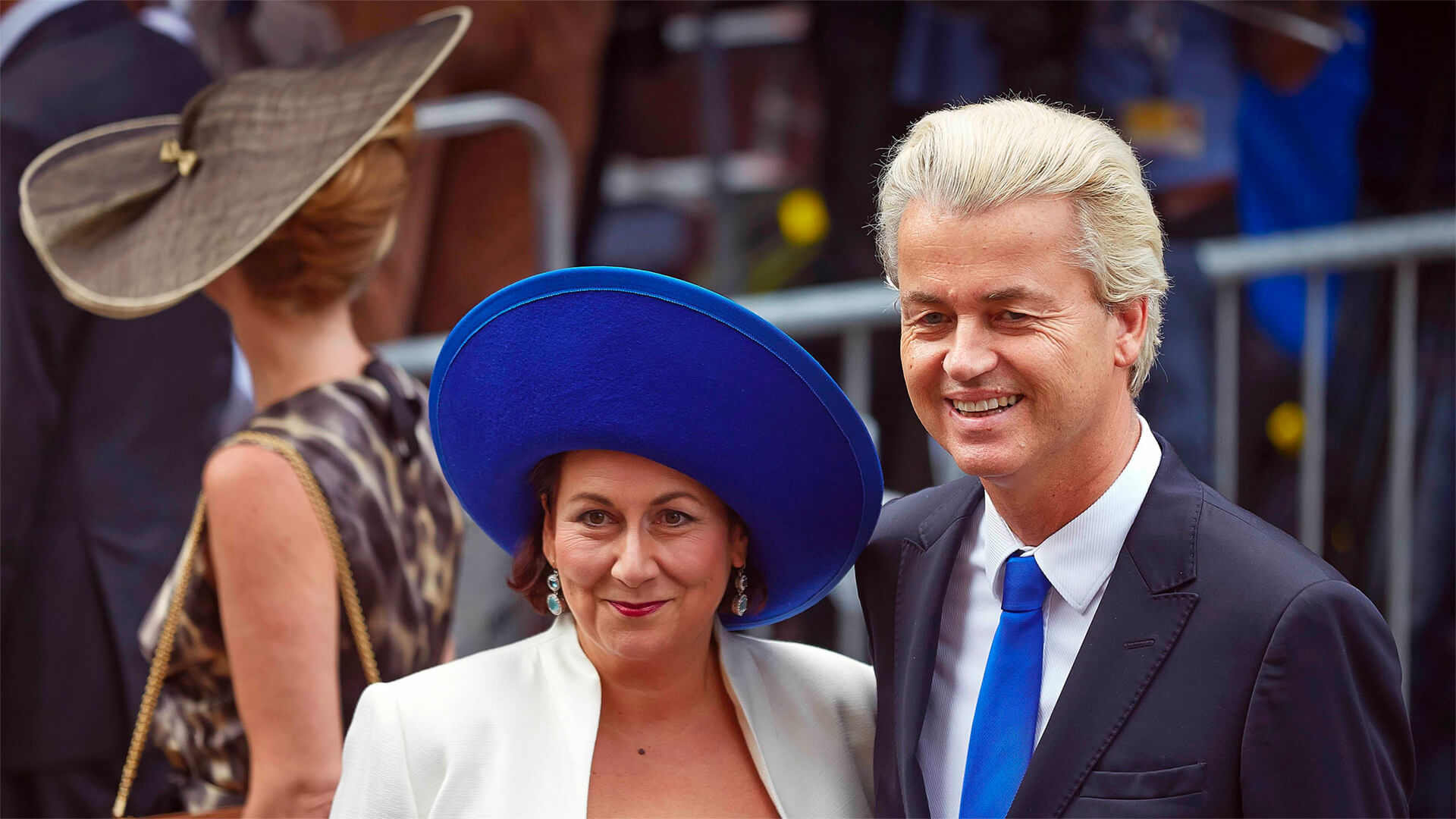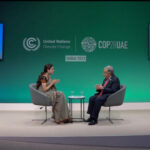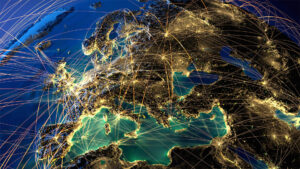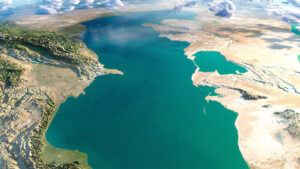The Netherlands has recently undergone an election of its own, so let’s look at the incoming coalition and how it will impact Dutch politics.
In the Netherlands, voters cast their ballots for a party rather than individuals, giving them a multi-party system with countless coalition possibilities. Geert Wilders will likely lead the incoming coalition, but bringing together at least four parties is no easy task. All that to say, Wilders will have to compromise on some of his more extreme ideas if he wants to build this coalition with any semblance of speed.
The Netherlands has long operated as a broker for Europe. The previous PM, Mark Rutte, played that role perfectly, but I’m not as optimistic about Wilders. The longer it takes to form his coalition, the more the plot will thicken…
Here at Zeihan On Geopolitics we select a single charity to sponsor. We have two criteria:
First, we look across the world and use our skill sets to identify where the needs are most acute. Second, we look for an institution with preexisting networks for both materials gathering and aid distribution. That way we know every cent of our donation is not simply going directly to where help is needed most, but our donations serve as a force multiplier for a system already in existence. Then we give what we can.
Today, our chosen charity is a group called Medshare, which provides emergency medical services to communities in need, with a very heavy emphasis on locations facing acute crises. Medshare operates right in the thick of it. Until future notice, every cent we earn from every book we sell in every format through every retailer is going to Medshare’s Ukraine fund.
And then there’s you.
Our newsletters and videologues are not only free, they will always be free. We also will never share your contact information with anyone. All we ask is that if you find one of our releases in any way useful, that you make a donation to Medshare. Over one third of Ukraine’s pre-war population has either been forced from their homes, kidnapped and shipped to Russia, or is trying to survive in occupied lands. This is our way to help who we can. Please, join us.
TranscripT
Morning, everybody. Peter Zeihan here coming to you from a chilly New York City in Central Park. We’ve had a fresh election in the Netherlands, which looks like it’s going to generate a couple of interesting effects. So I thought it was worth talking about it. Specifically, the outgoing government of Margaret Ruther is now giving way to an incoming coalition that will be led most likely by a guy by the name of Gert Viel.
There’s who’s got frizzy hair. He’s oftentimes called the Dutch Trump because of his views on immigration and other countries in general. It’s nothing like that. This is still very Dutch, which is to say center, center right. Fairly calm politics. But a lot of people are worried that this is going to break a lot of European issues, perhaps causing complications for Ukraine policy and the short version is we’re just not there yet.
The Netherlands has a very different electoral system for the United States. So in the United States, we have a first past the post single member district system, which is a fancy way of saying that when you go to the ballot box, you vote for a very specific person who’s going to represent a very specific group of people in a delineated geographic area, whether it’s your state or your district.
That’s not how it works in the Netherlands and the Netherlands, you go and you vote for a party. And if a party gets 30% of the vote, as Wilders party did, they then get 30% of the parliamentary seats. This is an interesting system that allows for maybe a little bit more of a pure democracy system, although you don’t know who you’re going to necessarily get because it’s on a party list.
And if they get 30 seats in the top 30 people on their party list, get the seats. But the Netherlands has a weird way of doing things because they really don’t have a floor. There’s 150 seats in the parliament. And if you get 1/150 of the vote, you get a seat, which means you get a lot of parties.
And I think there’s going to be something like 11 in the new parliament. So Wilders isn’t simply going to be prime minister. He first has to cobble together a coalition of a minimum of four parties in order to then establish a government. This is a lengthy process, even when everybody sees everything from the same point of view. So the outgoing government of Ruth, for example, took them nine months to build their government last time, I think eight months the time before that.
So we are not going to see a new Dutch government this year. And it’s entirely possible, considering how actually I say this personality challenge to builders is that we might not even see it next year. Now, you shouldn’t necessarily expect to see huge shifts in policymaking in the near term because some of the builders more from the Dutch point of view, egregious ideas are going to have to go away if he’s going to build a coalition.
In addition, there’s really not a lot of argument anywhere across the political spectrum in the Netherlands about Netherlands place in the world. The Netherlands is pro-American and pro-British and pro-European for reasons that are different from a lot of other countries. Specifically, they’re pro-European because they don’t really like the Germans or the French that much. And the general idea is if you can get the French and the Germans into an institution where other members can kind of dilute their influence, then everybody wins, especially the Dutch, because they handle the trade between the French and the Germans.
They like to keep the Brits close because it’s, again, a hedge against Germany and France and let’s keep the Americans close for the same reason. Keep in mind that the Netherlands is a small chunk of territory, roughly the size of this state here, and as a result, it has a little problem with the fence because it’s completely flat and it’s its borders are completely exposed to its neighbors.
So it’s never going to be a military power. All it can hope is to entangle as many other military powers into its own interests so that the French or the Germans don’t just run roughshod across them. The problem we’re going to see is not with European policy per say. It’s not like things are going to change in the Netherlands, it’s just that for the next several months, maybe up to a year, we’re not going to have a government in the Netherlands that’s capable of playing what has traditionally been the other big role of the Netherlands in Europe, and that is of broker because the Netherlands is either considered the smallest of the large states or
the largest of the small states. They’ve got their fingers on a lot of pots, and it allows the Netherlands to broker deals with parties across the spectrum on economic size and wealth that you wouldn’t expect a middle power like the Netherlands to be able to pull off. And in this, Mark Rutte, that has been key. There’s been a lot that’s happened under his leadership.
He came in at the tail end of the financial crisis when the Greek bailouts were getting really crazy. He helped participate in the solidification of the expansion to include the new members. And now he’s played a central role in the next wave of expansion that is supposed to include a number of countries in the former Soviet sphere of influence up to including Ukraine.
And he’s been doing this while being a relatively reliable spokesman for American and British interests in Europe, as long as it doesn’t hurt Europe. So this sort of balanced, integrated player has been very, very, very important. Everything that’s gone down in Europe for the last decade because he’s been running the place for almost 15 years now, Villiers, regardless of what he says, does have a lot of experience doing this.
Yes, he’s been in the Parliament for the last quarter century, but he’s never been in a government. He reminds me a little bit of Joe Biden and that he’s never really had a big boy job. And so it’s going to take time for him to build the gravitas. It’s necessary to play that broker role within the European Union.
And until then, the French and the Germans don’t have the marriage counselor, and the rest of Europe doesn’t have their advocate of their handbrake. That’s assuming we get a government tomorrow and we’re not going to get a government for months. So the ability of Europe to manage in this environment just went down a very, very big Dutch shaped notch because the Netherlands at the moment can’t play its traditional role.








